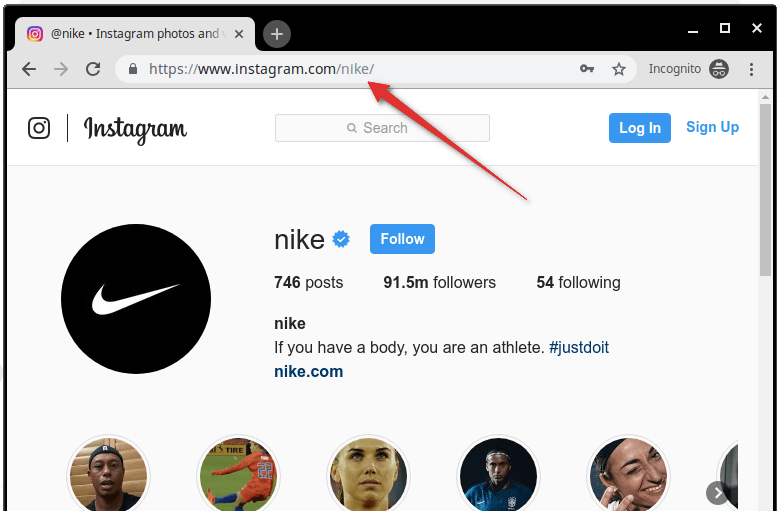Grow Your Business
11 Signs That a Company Should Outsource IT
Hiring an outsourced IT company will always be cheaper than hiring in-house IT staff.
When new technologies come out, it is really hard for an in-house team to keep up with the latest developments.
If your company is growing quickly, you will need to find more people to work on IT tasks. You can hire an outsourced IT company that has more resources and can keep up with the growth of your company.
You might not even know all the different things that an in-house team does, so it would be hard for you to figure out if they are doing their job correctly or not. An outsourced company will do these tasks efficiently and effectively because they specialize in them.

There are many benefits to outsourcing parts of your company, including faster technology & better quality. This article looks at some of the advantages that outsourcing IT services can provide your company.
Experts from Forbes share their thoughts on signs that outsourcing your technology will be the better choice. Following are four key points to consider when deciding whether or not to outsource, according to Forbes:
1. IT Negatively Affects Business Operations
Outsource when IT begins to take time away from the functioning of your business. The more time you spend on your IT setup, the less time you are spending on your business objectives. Often when you outsource your IT, you get an entire team with a wide variety of skills, rather than having a single in-house resource. Don’t wait until you make a mess of your setup to outsource your IT! – Daniel Munk, FenceCore IT Solutions
2. There’s A Growth And Skills Gap
In order to scale up, it often makes sense to outsource until you know you are ready to take on extra developers or IT talent full-time. Plus, if you need to fill a skills gap quickly to get a project done, it’s time to outsource. – Chalmers Brown, Due
3. Outsourcing Would Enable Better IT
Most IT teams already outsource some responsibilities (software-as-a-service apps, for example), so the question of whether to outsource a solution or service should fall within a bigger discussion about the business strategy, rather than the budget. Sure, the budget is important. But the budget doesn’t gain you an edge on the competition. The ability to refocus your IT staff more toward innovation, though—that definitely could. – Jeffrey Ton, InterVision
4. Time To Market Is A Primary Concern
Typically, the need to outsource IT operations comes from not having the necessary in-house expertise and development bandwidth. The problem becomes more acute when a short deadline is involved and external talent is not available. Measuring the importance of time to market versus hiring qualified talent to complete the project in-house usually dictates the importance of seeking outsourced help. – Chris Kirby, Retired
5. Skill Sets Don’t Match Needs
When your IT workforce’s skill sets are outdated or aren’t fostering business growth, it’s time to look outside the organization; even (or especially, to be honest) if that means reducing headcount. Implementing services that cut costs, increasing your flexibility and being able to remain relevant in a changing environment is an unalloyed benefit. – Adam Stern, Infinitely Virtual
6. You Have High Turnover
If you have a high turnover rate, you may not be paying your developers enough, and it’s best to outsource to take your company to a certain amount of profitability before hiring your next full-time developer. Make sure that your new outsourced team is fluent in English to limit miscommunication errors. – Thomas Griffin, OptinMonster
7. Your Project Requires Niche Expertise
Many myths exist around outsourcing, but true worth becomes apparent once you look beyond cheap, inefficient vendors. Projects that require niche expertise, like mobile or artificial intelligence, are often good to outsource to a company with that expertise, rather than hiring a full set of specialists or challenging your internal IT department. Look for proficiency, not cost, and you’ll still end up saving money. – Artem Petrov, Reinvently
8. IT Is Not One Of Your Core Competencies
In my opinion, it is time to outsource IT in two major instances: when IT is not an integral part of the company’s core competency or intellectual property (IP) and when a company can receive the same service at a better quality and lower cost without risk of losing any IP or competitive advantage. – Mohamad Zahreddine, TrialAssure
9. IT Operations Are Causing You Problems
If managing, hiring or maintaining your IT operations is causing you problems, that is a clear indication you should look into outsourcing them. Companies should focus on growing their business, not on their IT operations cost center—leave that to a partner. – Carlos Melendez, Wovenware
10. IT Is A Commodity
The simplest way to solve this is to ask: “Is the thing you’re looking to outsource (IT or otherwise) a commodity or a competitive advantage?” If it’s a commodity, outsource it. If it’s competitive, then keep it inside. Email is the historic example: No one needs to run their own email servers anymore—just outsource it and get it to the best-in-class service-level agreement and cost to the organization. – Sultan Meghji, Virtova
11. Outsourcing Makes Sense Strategically
It doesn’t just have to be a budget concern or a lack of resources; sometimes deciding to work with an outsourced IT operations team is strategic. They often have more years of experience, a team of knowledgeable staff and internal resources that would take a company’s team years to build up. You wouldn’t act as your own dentist—you outsource that. The same goes for utilizing outside IT expertise. – Frank Cittadino, QOS Networks
-

 Marketing Tips2 days ago
Marketing Tips2 days agoWhat is my Instagram URL? How to Find & Copy Address [Guide on Desktop or Mobile]
-

 Business Imprint4 days ago
Business Imprint4 days agoAbout Apple Employee and Friends&Family Discount in 2024
-

 App Development3 days ago
App Development3 days agoHow to Unlist your Phone Number from GetContact
-

 News5 days ago
News5 days agoOpen-Source GPT-3/4 LLM Alternatives to Try in 2024
-

 Crawling and Scraping5 days ago
Crawling and Scraping5 days agoComparison of Open Source Web Crawlers for Data Mining and Web Scraping: Pros&Cons
-

 Grow Your Business2 days ago
Grow Your Business2 days agoBest Instagram-like Apps and their Features
-

 Grow Your Business5 days ago
Grow Your Business5 days agoHow to Become a Prompt Engineer in 2024
-
Marketing Tips2 days ago
B2B Instagram Statistics in 2024








